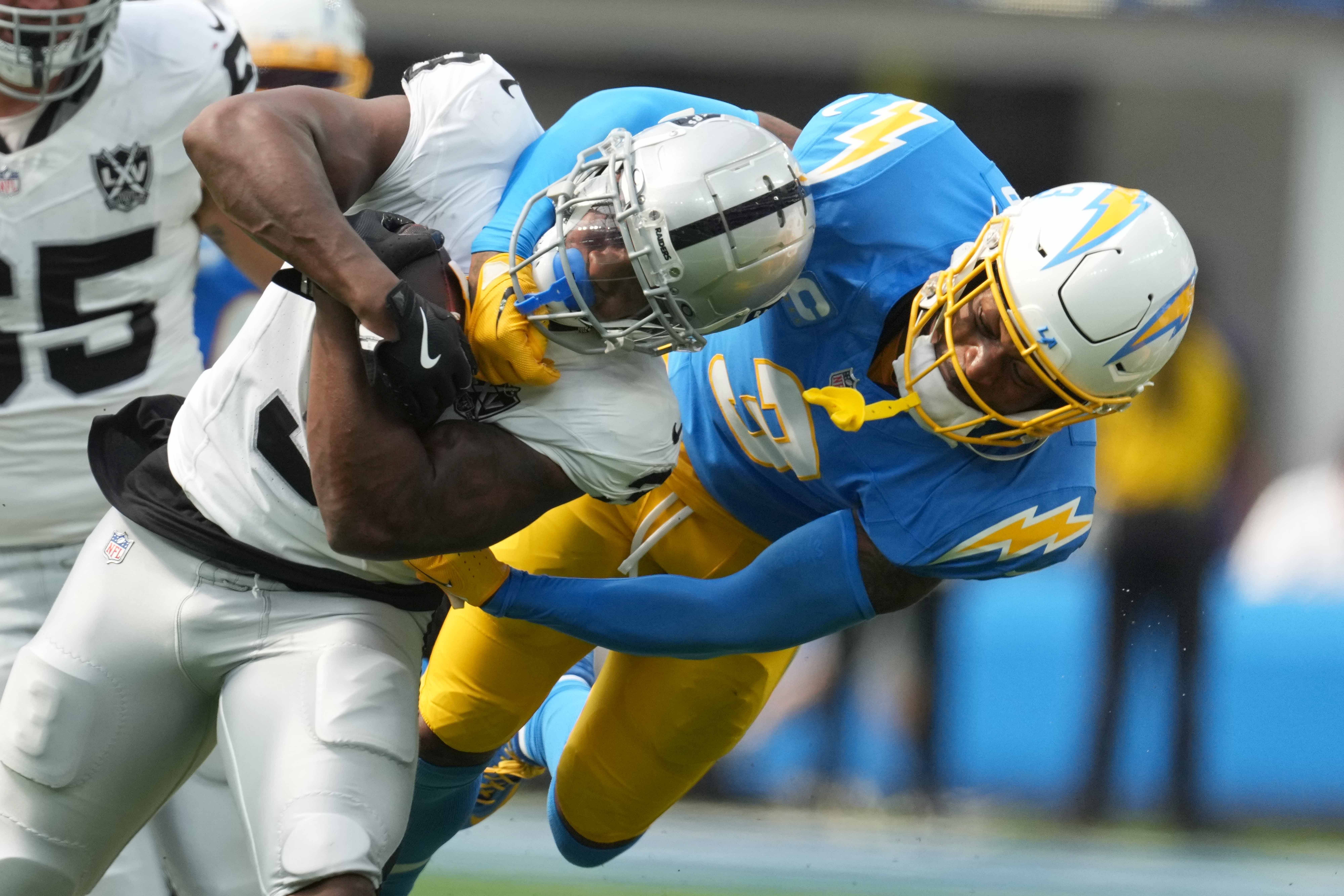
Derwin James Jr. puts the NFL on notice after returning from one-game ban: "Ain't going to change s**t"
Last Sunday, the Los Angeles Chargers suffered a 17-10 loss to the Kansas City Chiefs at SoFi Stadium and missed the opportunity to jump to the top of the AFC West standings. Instead, they now trail their division rivals by two games, who also hold the tiebreaker courtesy of their win, effectively giving them a three-game lead over LA.
The result could've been different had safety Derwin James Jr. not missed the game due to a suspension. The veteran is set to return to action in Week 5 against the Denver Broncos. During his media availability on Monday, the 28-year-old warned receivers that he wasn't planning on holding back if he had the opportunity to lay them out.
"No, [the suspension] ain't going to change s**t. It's definitely not going to change nothing. Like I said, I'm just going to go lower. I'm not going to change. I'm going to play my style, but like I said, I'll just go lower. I'm not going to keep paying 700, 800 thousand [dollars in fines]."
Why was Derwin James Jr. suspended by the NFL?
The NFL handed Derwin James Jr.. a one-game suspension without pay for violating the league's health and safety rules. The 28-year-old was flagged for unnecessary roughness for his dangerous tackle on tight end Pat Freiermuth in the third quarter of the Chargers' Week 3 loss to the Pittsburgh Steelers.
This was the fifth time James had been flagged for unnecessary roughness for hitting a receiver in the head since the start of the last season. The hit on Freiermuth was seemingly the final straw for the league and they decided to take action against the safety.
The NFL's Vice President of football operations Jon Runyan also sent a stern letter to the Chargers star explaining why they suspended him without pay. An excerpt from the letter read:
“Your continued disregard for NFL playing rules will not be tolerated. Substantial penalties are warranted when players violate the rules intended to protect player safety on a repeated basis, particularly when the violations carry with them a significant risk of injury to an opposing player.”
James appealed the decision but couldn't get the league's decision overturned. Even after serving the ban, he continues to plead his innocence.